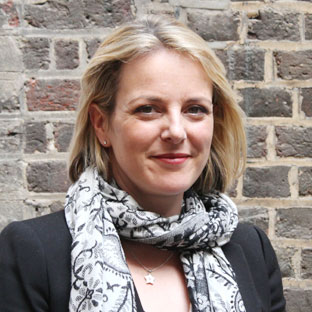...but to clarify, I don’t “believe” in anthropogenic climate change, because it is not a religion.
I do, however, accept that there is considerable scientific evidence that man-made climate change is happening, and that reducing greenhouse gas emissions would help to mitigate against its effects. And yesterday’s 100-page "synthesis report" from the UN's Intergovernmental Panel on Climate Change (IPCC) backs this up no uncertain terms, stating that:
-
Greenhouse gas emissions from human activity between 2000 and 2010 were the highest in history.
-
Since 1970, total carbon dioxide emissions from fossil fuels and cement production have tripled.
-
It's extremely likely humans are responsible for more than half of the warming since the 1950s. Scientists' best guess is that greenhouse gases explain all the warming.
But while the evidence presented by the IPCC suggests that it is imperative that "action" is taken now, as my colleague Jonathan Rowson has said: generic calls for ‘action’ on climate change actually stifle our ability to act. While the IPCC outlines some clear measures that countries could take to deal with emissions, it offers the broad caveat: "Many adaptation and mitigation options can help address climate change, but no single option is sufficient by itself. Effective implementation depends on policies and cooperation." Policies and cooperation, eh? Now that's the tricky bit.
Bring on the evidence-based policy making...
The IPCC evidence on climate change has been stacking up since 1988 and is now comprehensive, compelling and urgent. With this final report, even the business community is calling for action from politicians (Phillipe Joubert, Chair of the Corporate Leaders Group said: “The findings of this report are required reading... if we are to unlock the scale of change that we need, we must have a level of policy clarity equal to this scientific clarity.”) But the policy solutions are still far from clear.
This is because there is a big gap between accepting the evidence and taking action. While we may have had a Department of Energy & Climate Change since 2008 and David Cameron may have publicly accepted climate change science, we are still not likely to build bold policy on the back of the IPCC's scientific evidence. By bold policy, I don't mean the Green Deal, I mean far tighter carbon budgets and an 80% target for emissions reduction by 2030 not 2050 - that would be evidence-based policy making in action.
In theory, evidence-based policy making should produce policy that is built on robust scientific evidence and avoids ideological or populist decision making. But that does not account for the humans who have to make those decisions about what action to take, which of course is a political problem. And politics is about people and their manifold interpretations of a problem. Once the debate moves on to the best use of public funds (renewable energy, carbon capture and storage, energy efficiency measures, nuclear, fracking, etc.), it gets very messy, as one man's wind turbine is another's monstrous carbuncle.
Putting cold hard cash behind Global Warming
Even if there is clarity and consensus about the challenges of climate change within the UK government, there is no such clarity on how to act to deal with it. There are multiple options, many of which become blindingly complex and present huge budgetary challenges. Everything proposed by DECC has to be approved by HM Treasury, and the Treasury decision-making process is where the political debate really heats up.
Few subjects elicit such passion as climate change - especially for the "non-believers" - and while the scientific evidence base grows, so too does the muscle of climate change deniers. Owen Paterson, the former secretary of state for environment, food and rural affairs who famously coined the phrase “the Green Blob” to describe the environmental movement, proposed recently that the UK Climate Change Act should be entirely scrapped. And he’s not alone. Former chancellor Lord Lawson, noisily peddles his global warming scepticism through his Global Warming Policy Foundation thinktank all over the media and, like his daughter, he makes great telly.
While the environmental lobby would like to compartmentalise Lawson’s climate change denial as an example of the unwelcome intrusion of politicians into science, he is a key player in the decision making process - even if technically he is only shouting from the sidelines. His rhetoric may have been described as ignorant and dangerous, but he ain’t no “nobody” as the scientists like to suggest. Nigel Lawson has notable experience of having to interpret scientific evidence and make budgetary decisions for where to deploy public funds as the former Chancellor of the Exchequer. What his polemic exposes is the inherent biases present in the dialogue about climate change and the powerful influence that the lobbyists wield.
The future for climate change policy
While many in government would like to see evidence-based policy making become the norm (indeed the government has invested in a series of What Works Centres to enable commissioners to access independent evidence across a range of policy areas). Climate change is one area where the battle will get bloodier before real action is taken. The same could be said for both immigration and drugs policy (see Dave Yate's recent RSA blog on drugs policy and the “inconvenient facts”). So what would it take for government to be really bold?
Firstly, it will take a strong stomach - one that can take the punches - because there will be many.
Secondly, it will take brains, because if evidence based policy making is to work, you've got to really understand the evidence
Thirdly it will require grace - to both listen to all the input (both political and scientific) and recognise that the noisiest opinion is not necessarily the most representative of the public. (The RSA's research indicates that only a fifth of the population are ‘unconvinced’ about the reality of anthropogenic climate change – those often termed ‘deniers’ or ‘sceptics’)
Finally, it will take boldness to face up to pervasive ‘stealth denial’ and keep some of the fossil fuels in the ground. The RSA's report, A New Agenda on Climate Change says: "facing up to stealth denial [means] that we should turn more of our attention to mobilising those who, like the author of this report, fully accept the moral imperative to act, but continue to live as though it were not there."
As Goethe reportedly once said... “Boldness has genius, power and magic in it!”
Rowan Conway is Director of Connected Communities at the RSA. Follow her on Twitter on @rowanelena
Related articles
-
Blog: Trying to behave myself - a Social Brain Odyssey
Jonathan Rowson
In his final blog, Jonathan Rowson looks back on his time at the RSA and our behaviour change work.
-
New Report: The Seven Dimensions of Climate Change
Jonathan Rowson
A talent for speaking differently, rather than arguing well, is the chief instrument of cultural change – Richard Rorty
-
Seven Serious Jokes about Climate Change
Jonathan Rowson
Comedy is simply a funny way of being serious - Peter Ustinov




Join the discussion
Comments
Please login to post a comment or reply
Don't have an account? Click here to register.
Hasn't the climate been changing since the begining of the earth? Man made climate change is nothing more than a money grab. Of corse the climate is changing, always has, always will. Unless you can change the way we view time.
I too “accept that there is considerable scientific evidence that man-made climate change is happening, and that reducing greenhouse gas emissions would help to mitigate against
its effects.” So do 97% of the people you describe as “climate deniers”. So does Nigel Lawson, as he has said time after time, yet you describe his rhetoric as “ignorant and dangerous”.
If, as you claim, the “muscle of climate change deniers” is growing, perhaps it's because no-one is arguing against us.